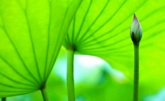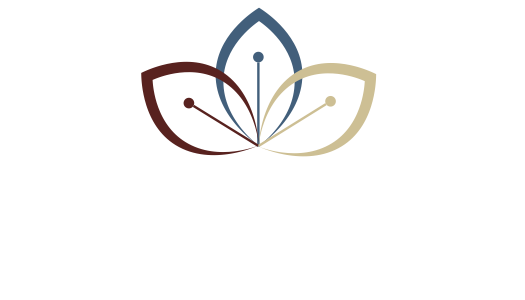 In This Issue (Get QiMail delivered to your inbox )
In This Issue (Get QiMail delivered to your inbox )
– Prepare for Allergy Season with Acupuncture
– Foods for Seasonal Allergies
– Colds and Influenza
– Point: Dazhui
– News, Events and Community!
Prepare for Allergy Season with Acupuncture
Acupuncture has been used to treat seasonal allergies for centuries with great success. According to traditional medicine, treatment is directed toward clearing the nasal passages, supporting the immune system and strengthening the systems of the body to prevent allergic reactions from recurring.
What Are Seasonal Allergies?
Commonly called hay fever or allergic rhinitis, a seasonal allergy is an allergic reaction to a trigger that is typically only present for part of the year, such as spring or fall. Pollens that are spread by the wind are usually the main cause of seasonal allergies. People who are allergic to pollens are also often sensitive to dust mites, animal dander, and molds.
Spring is traditionally the main season when allergies blossom because of new growth on trees and weeds. Fall, which ushers in a whole different set of blooming plants, as well as leaf mold, is a close second. Airborne mold spores can be found almost year round, along with other common allergens such as dust, dust mites, and animal dander.
About 26 million Americans endure chronic seasonal allergies, while the number of people with milder symptoms may be as high as 40 million, according to the National Center for Health Statistics.
Seasonal allergies are caused by the body’s hypersensitivity to substances in the environment. Symptoms primarily involve the membrane lining the nose, causing allergic rhinitis, or the membrane lining the eyelids and covering the whites of the eyes, causing allergic conjunctivitis.
While there are many Western medications to treat the symptoms of seasonal allergies, these treatments can cause unwanted side effects, such as drowsiness and immune system suppression as well as an over-reliance on medications. These side effects have motivated many people to search for alternative approaches like acupuncture and Oriental medicine to manage their allergies.
How Acupuncture Treatments Provide Relief from Allergies
According to Oriental Medicine, allergic rhinitis is related to Wind and a deficiency of the Protective Wei Qi. Wei Qi is the Qi, or energy, that flows at the surface of the body as a protective sheath and is responsible for resistance to colds and other respiratory infections. People with a deficiency of Wei Qi catch colds easily and are more susceptible to allergens.
When treating with acupuncture, underlying imbalances within the body are addressed and a treatment plan is developed to relieve the acute symptoms of allergic rhinitis while also treating the root problems that are contributing to the body’s reaction to allergens. Treatments often include dietary modification, the use of specifically chosen herbal formulas, and acupuncture.
Seasonal acupuncture treatments just four times a year also serve to tonify the inner organ systems and can correct minor annoyances before they become serious problems. If you experience seasonal allergies, now is the time to schedule an appointment. Call for a consultation today!
Foods for Seasonal Allergies
Ginger: Ginger is a natural antihistamine and decongestant. It may provide some relief from allergy symptoms by dilating constricted bronchial tubes.
Apples: Some foods contain the flavonoid quercetin that can cross-react with tree pollen. Quercetin can reduce allergic reactions by having an antihistamine effect. It also decreases inflammation. Quercetin occurs naturally in certain foods, such as apples (with the skin on), berries, red grapes, red onions, capers, and black tea.
Carrots: Carotenoids are a family of plant pigments that include beta-carotene. A lack of carotenoids in the diet is thought to promote inflammation in your airways. Good sources of carotenoids include apricots, carrots, pumpkin, sweet potato, spinach, kale, butternut squash, and collard greens.
Omega-3: Omega-3 essential fatty acids can counter the formation of chemicals that cause inflammation of the air passages. Good natural sources include flaxseed oil and salmon.
Yogurt: Food sensitivities seem to be connected with seasonal allergies. In a study conducted at the University of California, San Diego School of Medicine, patients who were fed 18 to 24 ounces of yogurt a day experienced a decline in their environmental allergic symptoms by 90 percent.
Fiber: A healthy and active colon can decrease food sensitivity, which, in turn, can lighten the burden on your immune system and may reduce the impact of seasonal allergies. For maximum colon health, increase the fiber in your diet.
Colds and Influenza
This year there will be 1 billion colds and 95 million cases of influenza in the United States alone. While the misery of colds and flu might be inevitable, one thing is changing: where we look for relief.
Get Better Faster
If you have already come down with a cold or the flu, acupuncture treatments can help relieve symptoms you are currently experiencing including chills, fever, body aches, runny nose, congestion, sore throat and cough. While bringing some immediate relief, treatments will reduce the incidence of an upper respiratory tract infection and shorten the length of the illness.
Prevention
Acupuncture and Oriental medicine can prevent colds and flu by strengthening the immune system with just a few needles inserted into key points along the body’s energy pathways.
If you catch colds easily, have low energy and require a long time to recuperate from an illness your wei qi may be deficient.
Call today to see how Acupuncture can help you!
Point: Dazhui
One particularly important point for supporting the Wei Qi is Dazhui, or Du 14. Translated as “Great Vertebra” in English, it is located below the spinous process of the seventh cervical vertebrae, approximately where the collar of a T-shirt sits on the neck.
Du 14 activates the circulation of blood and Qi to strengthen the outer defense layers of the skin and muscle (wei qi) so that germs and viruses cannot enter through them.
This point is often used to ward off, as well as shorten, the duration colds and flu.
News, Events and Community!
NEWS
A special request: John has been nominated for the SF Bay Area “A List” – Your help and support is requested, please vote at http://ctvr.us/alameda7
(We are currently in 2nd place, there are a few days left to vote. Thanks everyone, your votes and comments are delightful!)
– You can schedule up to three months in advance http://www.appointmentquest.com/provider/2120071333 or call (510) 814-6900
– Shang Han Lun Mondays Low Cost & Drop-In Mondays from 1-4pm, want details – listen to the Balancing Point Podcast episode 1/9/12.
– We are open on Saturdays for drop-in appointments from 10-2.
– Please join our Facebook community http://www.facebook.com/pages/Alameda-Acupuncture-Dr-John-Nieters-LAc/126245057390177
EVENTS
March
What: 83rd Annual Chinese Medicine Day
Time: 3/18/2012 6:00-6:30pm
Where: 631 Grant Avenue, SF CA
Cost: $25 (415) 982-3245
What: ACCHS Spring Open House
Time: 3/17/12 2:00-5:00 pm
Where: 1601 Clay Street, Oakland, CA
Cost: FREE
If you have been thinking about a career change and want to learn about becoming an acupuncturist come to this event.
COMMUNITY
Thank you Desiree for your kind review of your experience in our clinic on yelp.com “Dr. Nieters is a nice guy and he treats every patient with respect and really cares for them. His clinic is nice and relaxing this is the place to come if you are sick or need help. Dr. Nieters has helped me through my back injury and helped me to get better. Def go see him and his staff you won’t regret it.”
Thank you again Desiree. This medicine is AMAZING!



